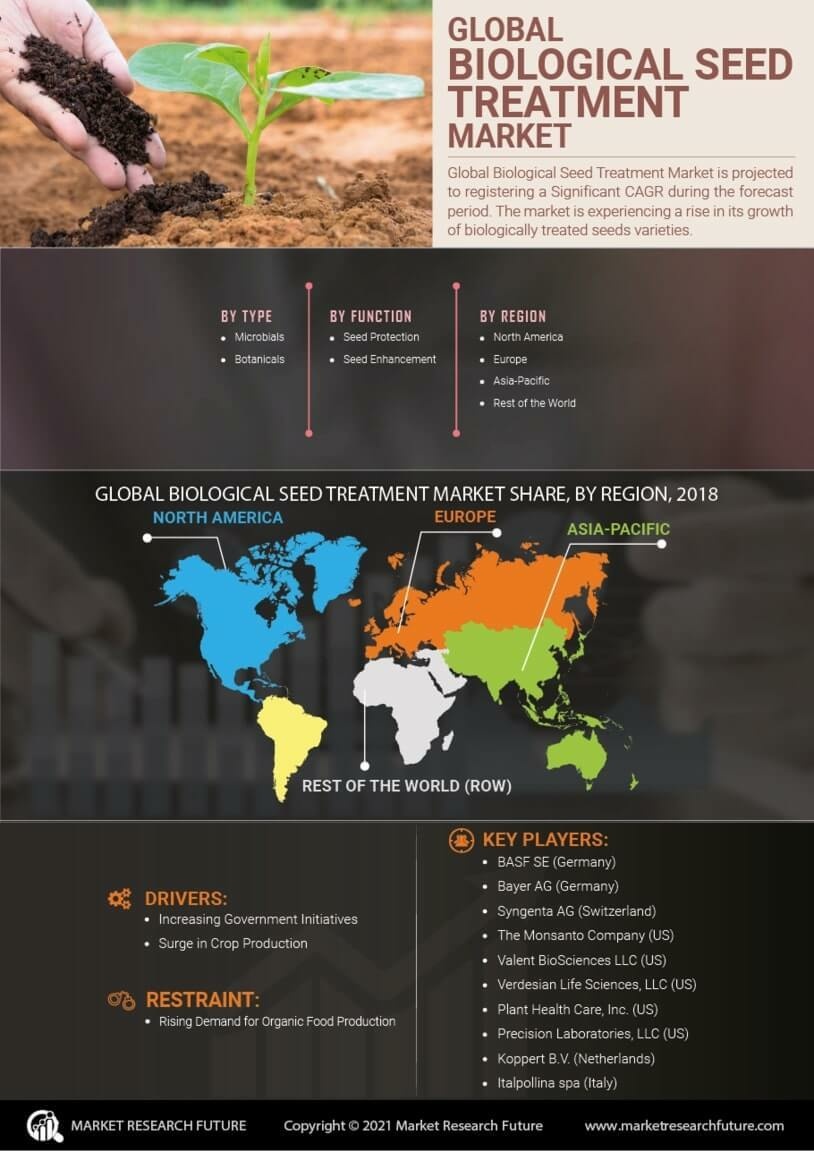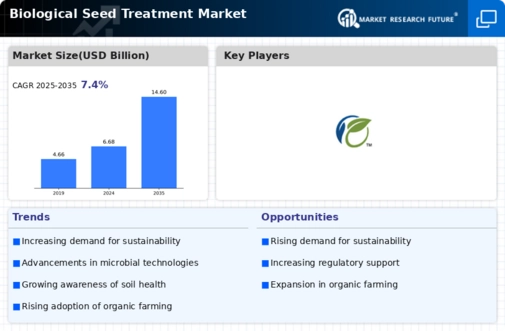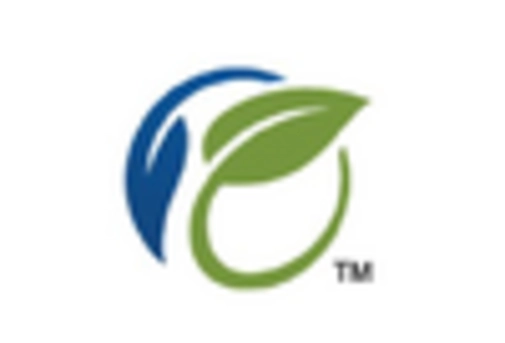By Region, the study provides market insights into North America, Europe, Asia-Pacific, and the Rest of the World. North America Biological Seed Treatment Market accounted for USD 2.6 billion in 2022 and is expected to exhibit a significant CAGR growth during the study period. The rising adoption of organic farming in countries such as the U.S., Mexico, and Canada is anticipated to drive the industry. Canada and Mexico are the major exporters of grains all over the world.
Further, the major countries studied in the market report are: The U.S, Canada, Germany, France, UK, Italy, Spain, China, Japan, India, Australia, South Korea, and Brazil.
Figure 2: Biological Seed Treatment Market Share By Region 2022 (%)
Europe Biological Seed Treatment Market accounts for the second-largest market share due to the rising number of farmers employing biological seed treatment to safeguard the seeds and crops from infections, pests, and nematodes to produce a sizeable crop. Further, the Germany Biological Seed Treatment Market held the largest market share, and the UK Biological Seed Treatment Market was the fastest-growing market in the European region
The Asia-Pacific Biological Seed Treatment Market is expected to grow at the fastest CAGR from 2022 to 2030. Future product demand is anticipated to be driven by the robust agricultural sector expansion in nations including Sri Lanka, Bangladesh, China, India, and the former Soviet Union. Moreover, China Biological Seed Treatment Market held the largest market share, and the India Biological Seed Treatment Market was the fastest-growing market in the Asia-Pacific region
For instance, India Biological Seed Treatment Market is the favored destination for the biological seed treatment market growth. Furthermore, it is anticipated that the demand for food and agricultural products will continue to be driven by the growing population and rising income. The main drivers of market expansion are the need for higher-quality seeds and the rising popularity of agriculture in the area. Seed treatments are necessary for essential crops like cereals (corn and barley) and fodder plants (alfalfa, clover, and rapeseed) to prevent anthrax diseases such as decay and bare smut.
Moreover, seed treatments can help the crop's early development. As a result, the manganese and zinc-based seed treatments, which boost the plant's root system, are becoming increasingly common in the area.











